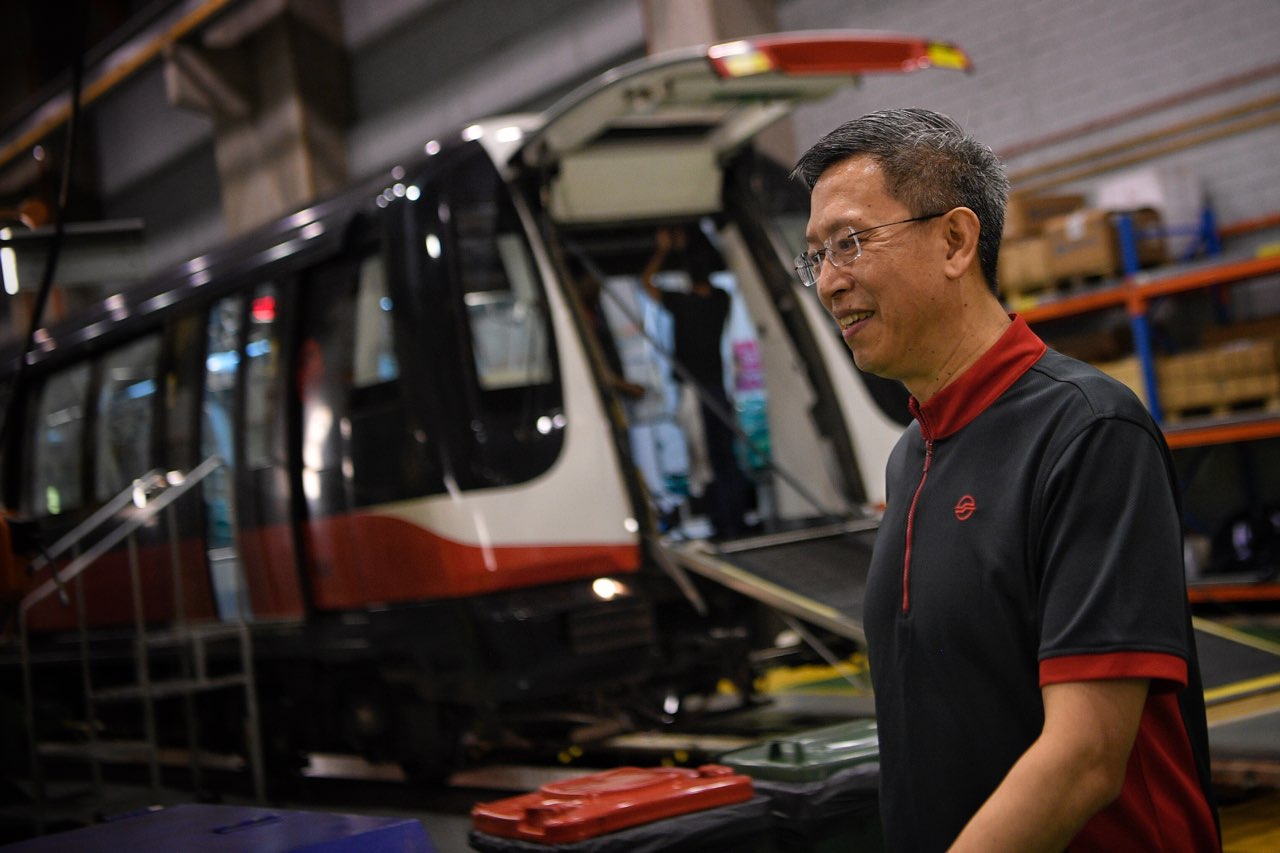No 'deep-seated cultural issues' at SMRT, says its new CEO Neo Kian Hong
Sign up now: Get ST's newsletters delivered to your inbox

To ensure staff perform, it takes good leadership as well as engagement with the ground, said SMRT's chief executive Neo Kian Hong.
ST PHOTO: MARK CHEONG
Follow topic:
SINGAPORE - The "deep-seated cultural issues" of human error or failure characterised by his predecessor Desmond Kuek do not exist within the SMRT, said its new chief executive Neo Kian Hong on Friday (Nov 16), as he unveiled internal moves geared at improving rail reliability.
"Based on my experience, our people want to do well," said Mr Neo in response to a question from the media during a visit to the SMRT Kim Chuan Depot located off Paya Lebar Road.
"I do not agree with the term (deep-seated cultural issues), because that's not my experience when I engage with the ground."
To ensure staff perform, it takes good leadership as well as engagement with the ground, said Mr Neo, a former chief of defence force who became SMRT's CEO from Aug 1.
The issue of "deep-seated cultural issues" within SMRT came into the spotlight last year, when Mr Kuek - also a former chief of defence force - had used it to explain the lapses within the organisation that led to the tunnel flooding incident in October last year (2017).
"Much progress has been made with the inculcation of a positive work culture in the workforce, but there remain some deep-seated cultural issues within the company that has needed more time than anticipated to root out," Mr Kuek, who became SMRT CEO in 2012, was quoted as saying then.
"Indeed, many of our major disruptions in the past have been attributed in some part, or all, to human error or failure. We regret that this is so."
On Friday, Mr Neo said the transport operator will be reorganised into five broad groups - Trains, Engineering, Roads, Experience and Corporate Services - with Trains at its core.
"SMRT is a public transport service provider. Our primary business is to manage and operate train services. The quality and reliability of our rail services will have an impact on the quality of life of Singaporeans," said Mr Neo, who was permanent secretary for defence development at the Ministry of Defence before his SMRT role.
"We plan to strengthen the organisation to meet the intended outcomes and stay focused on our core business which is trains. We also need to grow our rail engineering capabilities and capacity to be ready for the future."
Besides exploring innovative technologies and processes to give SMRT the cutting edge, he noted the focus of digitising the company will enable it to have a connected workforce, harness data analytic and develop the next generation of supply chain management.
Mr Neo had given a townhall speech to SMRT employees on Friday morning and highlighted several main points. One observation was that by 2030, when the rail network expands to 360km, the MRT system will become the "essential backbone" of public transport to enable a car-lite society.
He also noted the rail system has a clear life cycle and has to be carefully managed and that "if we are slow in system renewal efforts and in staying ahead of the curve, we will compromise reliability, which we have all witnessed in the past".
SMRT's Mean Kilometre Between Failure (MKBF) figure, which is an indication of rail reliability, was 181,000 for its entire MRT network last year.
It is currently 661,000 and they are on track to achieve the 1 million benchmark set by 2020, Mr Neo said.
Touching on the attitude and work ethic of SMRT staff, Mr Neo said: "In the few months that I have been here, I was able to visit stations in the day and walk the tunnels in the night" and he witnessed staff "take pride in their work, and come to work daily, committed to doing their best".
He also noted: "While major incidents have occurred, we have learnt from these and are determined and eager to emerge better and stronger each time. We need to stay focused on our tasks and I am confident that we will eventually succeed."

